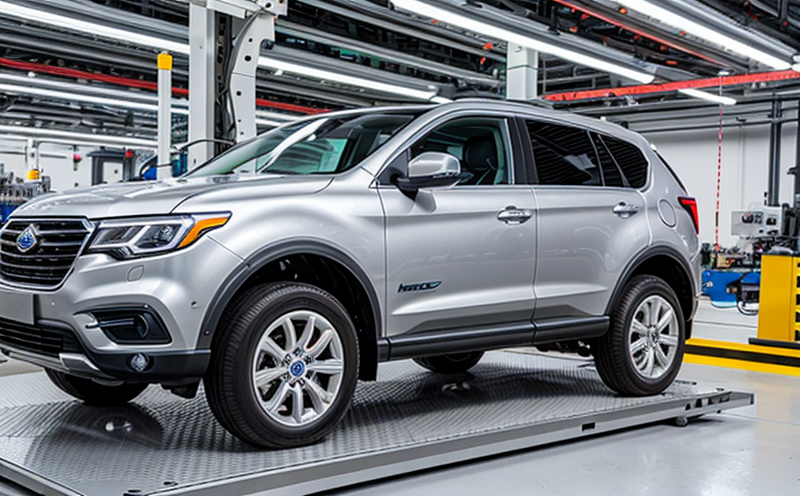Evaluating joint torque for robots in automotive production
Evaluating Joint Torque for Robots in Automotive Production Unlocking Efficiency and Reliability
In the fast-paced world of automotive production, manufacturers are constantly seeking ways to optimize their processes, reduce costs, and improve product quality. One critical aspect of achieving these goals is ensuring that robots used in production lines are functioning optimally. This is where Evaluating joint torque for robots comes into play a specialized laboratory service provided by Eurolab that helps automotive companies validate the performance of their robotic systems.
What is Evaluating Joint Torque for Robots?
Evaluating joint torque for robots involves analyzing the rotational force or torque applied to a robots joints, which are critical components responsible for the movement and precision of robotic arms. In an automotive production setting, these joints are subjected to various stressors, including heavy loads, repetitive motions, and temperature fluctuations, which can affect their performance over time.
Why is Evaluating Joint Torque Essential in Automotive Production?
The importance of evaluating joint torque cannot be overstated in the context of automotive production. By ensuring that robotic joints are functioning within specified parameters, manufacturers can
Reduce Downtime Malfunctioning or inefficient robotic joints can cause entire production lines to shut down, resulting in significant losses. Regular evaluation and maintenance help prevent these costly shutdowns.
Improve Product Quality Inaccurate or inconsistent joint movements can compromise product quality, leading to rejects and rework. Evaluating joint torque ensures that products meet stringent automotive industry standards.
Enhance Efficiency By optimizing robotic joint performance, manufacturers can streamline production processes, increase throughput, and reduce energy consumption.
Minimize Maintenance Costs Regular evaluation helps identify potential issues before they become major problems, reducing maintenance costs and extending the lifespan of robotic equipment.
Key Benefits of Evaluating Joint Torque for Robots
Our laboratory service provides a comprehensive evaluation of joint torque, including
Measurement of Rotational Force Accurate measurement of rotational force applied to each joint to determine if its within specified parameters.
Analysis of Movement Patterns Examination of movement patterns and repeatability to identify potential issues or inefficiencies.
Temperature and Vibration Testing Exposure to simulated environmental stressors (temperature, vibration) to assess joint performance under realistic conditions.
Comparison with Industry Standards Evaluation against established industry standards for robotic joints in automotive production.
What Sets Our Service Apart
At Eurolab, we pride ourselves on providing a bespoke laboratory service that meets the unique needs of each client. Our team of experts will work closely with you to
Develop Customized Testing Plans Tailor testing protocols to your specific requirements and production processes.
Provide Thorough Report Analysis Detailed analysis and interpretation of results, including recommendations for improvement.
Maintain Confidentiality and Security Strict confidentiality agreements ensure that all data and findings remain confidential.
Frequently Asked Questions
Q What types of robots can be evaluated by Eurolab?
A We evaluate robotic joints from various manufacturers, including those used in spot welding, assembly, and material handling applications.
Q How long does the evaluation process typically take?
A The duration of testing varies depending on the scope of work and complexity of the project. Our team will provide a detailed timeline for your specific needs.
Q What kind of support do you offer after the evaluation is completed?
A We provide ongoing technical support, including recommendations for maintenance and upgrades to ensure optimal robotic performance.
Conclusion
In conclusion, Evaluating joint torque for robots in automotive production is an essential service that helps manufacturers optimize their processes, reduce costs, and improve product quality. By partnering with Eurolab, you can trust that your robotic systems are functioning optimally, ensuring the highest level of efficiency and reliability on the production line. Contact us today to learn more about our laboratory services and how we can support your business goals.
Additional Services
Eurolab offers a range of complementary laboratory services to support our joint torque evaluation offering
Robotics Assembly Line Testing Comprehensive testing of robotic systems in assembly line settings.
Quality Control Inspection Thorough inspection of products and manufacturing processes to ensure compliance with industry standards.
Process Optimization Consultancy Expert advice on optimizing production processes for improved efficiency, reduced costs, and enhanced product quality.




